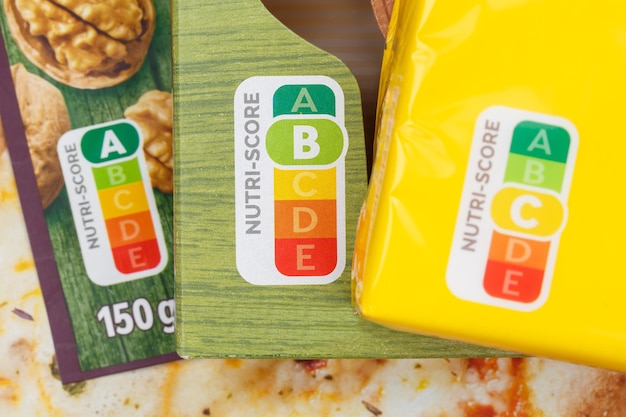The Impact of Processed Foods on Your Health: What to Know in 2025

The Impact of Processed Foods on Your Health: What You Need to Know in 2025 involves understanding how these foods, often high in sugar, salt, and unhealthy fats, can contribute to various health issues, including obesity, heart disease, and type 2 diabetes; making informed dietary choices is crucial for long-term well-being.
Are you concerned about the impact of your diet on your long-term health? Understanding the impact of processed foods on your health: what you need to know in 2025 is more crucial than ever, as these foods become increasingly prevalent in our daily lives.
Understanding Processed Foods
Processed foods have become a staple in many diets, but what exactly does “processed” mean? It’s essential to understand the different levels of processing and how they affect the nutritional value of the food we consume.
What are Processed Foods?
Processed foods are any foods that have been altered from their natural state, either to extend shelf life, improve taste, or make them more convenient. This can range from simple processes like canning and freezing to more complex manufacturing techniques.
Levels of Food Processing
Understanding the different levels of processing can help you make better dietary choices. Some processing is minimal and doesn’t significantly alter the nutritional content, while other processes can strip away nutrients and add unhealthy ingredients.
- Minimally Processed Foods: These include foods like pre-cut vegetables, bagged salads, and roasted nuts. They are processed for convenience but retain most of their nutritional value.
- Processed Foods: These foods have been altered to some extent with added ingredients like preservatives, sweeteners, and colors. Examples include canned goods, breakfast cereals, and deli meats.
- Highly Processed Foods: Also known as ultra-processed foods, these are typically manufactured with many added ingredients and are often high in sugar, salt, and unhealthy fats. Examples include fast food, frozen meals, and sugary drinks.
Identifying the level of processing in your food can help you make informed decisions about what you eat. Opting for minimally processed foods whenever possible can contribute to a healthier diet.
The Negative Health Impacts
The excessive consumption of processed foods has been linked to numerous negative health outcomes. These foods are often high in calories, unhealthy fats, added sugars, and sodium, which can contribute to various health issues.
Obesity and Weight Gain
Processed foods are often calorie-dense and lack essential nutrients, leading to overconsumption and weight gain. The high sugar and fat content can also disrupt the body’s natural appetite control mechanisms.
Heart Disease
The high levels of sodium and unhealthy fats in processed foods can increase blood pressure and cholesterol levels, significantly raising the risk of heart disease. These factors can lead to serious cardiovascular problems over time.
Limiting your intake of processed foods and focusing on whole, unprocessed foods can significantly reduce your risk of developing heart disease. A balanced diet plays a crucial role in maintaining cardiovascular health.
Hidden Sugars and Additives
One of the significant concerns with processed foods is the presence of hidden sugars and additives. These components can have a detrimental effect on your health, often without you even realizing it.
- Hidden Sugars: Processed foods often contain added sugars like high fructose corn syrup, sucrose, and dextrose. These sugars contribute to weight gain, insulin resistance, and an increased risk of type 2 diabetes.
- Artificial Sweeteners: While marketed as a healthier alternative, artificial sweeteners can disrupt gut bacteria and may lead to increased cravings for sweet foods.
- Additives and Preservatives: Many processed foods contain additives like artificial colors, flavors, and preservatives. Some of these additives have been linked to allergic reactions, digestive issues, and even certain cancers.
Being aware of these hidden ingredients and reading food labels carefully can help you make healthier choices. Opting for foods with minimal added sugars and additives can significantly improve your overall health.

The Impact on Gut Health
The gut microbiome plays a crucial role in overall health, influencing everything from digestion and immunity to mental health. Processed foods can negatively impact the gut microbiome, leading to various health problems.
Disruption of Gut Bacteria
The high sugar and low fiber content of processed foods can disrupt the balance of gut bacteria, leading to an overgrowth of harmful bacteria and a decrease in beneficial bacteria. This imbalance can contribute to inflammation and digestive issues.
- Reduced Fiber Intake: Processed foods are typically low in fiber, which is essential for feeding beneficial gut bacteria and promoting healthy digestion.
- Increased Inflammation: The additives and preservatives in processed foods can trigger inflammation in the gut, leading to digestive discomfort and chronic health issues.
Supporting a healthy gut microbiome through a diet rich in whole, unprocessed foods, fiber, and probiotics can help mitigate the negative effects of processed foods.
Making Healthier Choices
Despite the challenges, there are many ways to make healthier food choices and reduce your consumption of processed foods. Small, consistent changes can make a significant difference in your overall health.
Reading Food Labels
One of the most effective ways to make healthier choices is to carefully read food labels. Pay attention to serving sizes, calories, sugar content, sodium levels, and the list of ingredients.
Prioritizing Whole Foods
Focus on incorporating more whole, unprocessed foods into your diet. These include fruits, vegetables, whole grains, lean proteins, and healthy fats. Preparing meals at home allows you to control the ingredients and avoid hidden sugars and additives.

Mindful Eating
Practice mindful eating by paying attention to your body’s hunger and fullness cues. Avoid eating in front of screens or while distracted, and savor each bite. This can help you avoid overeating and make more conscious food choices.
Future Trends in Food Processing
Looking ahead to 2025, there are emerging trends in food processing that aim to address some of the health concerns associated with processed foods. These innovations focus on improving nutritional content and reducing the use of harmful additives.
Clean Label Products
Clean label products are becoming increasingly popular. These foods are made with simple, recognizable ingredients and avoid artificial additives, preservatives, and genetically modified organisms (GMOs).
Nutrient-Enhanced Processing
Some food manufacturers are exploring new processing techniques that preserve or even enhance the nutritional value of foods. This includes methods like high-pressure processing and pulsed electric field processing.
Staying informed about these trends and supporting companies that prioritize health and sustainability can help drive positive change in the food industry. As consumers demand healthier options, manufacturers are more likely to respond with innovative and nutritious products.
| Key Point | Brief Description |
|---|---|
| ⚠️ Health Risks | Excessive processed food intake can lead to obesity, heart disease, and type 2 diabetes. |
| 🔍 Hidden Sugars | Processed foods often contain hidden sugars and additives that negatively impact health. |
| 🌱 Gut Health | Processed foods can disrupt the gut microbiome, leading to digestive issues and inflammation. |
| ✅ Healthier Choices | Reading labels, prioritizing whole foods, and practicing mindful eating can improve your diet. |
Frequently Asked Questions (FAQ)
▼
Processed foods, often high in sugar, salt, and unhealthy fats, can contribute to obesity, heart disease, type 2 diabetes, and other chronic health conditions due to their lack of essential nutrients.
▼
Check the ingredient list for terms like high fructose corn syrup, sucrose, dextrose, and other syrups or sweeteners. Pay attention to the sugar content listed in the nutrition facts panel.
▼
Processed foods, typically low in fiber, can disrupt the gut microbiome by reducing beneficial bacteria and increasing harmful bacteria, potentially leading to inflammation and digestive issues.
▼
Opt for whole, unprocessed foods like fresh fruits, vegetables, whole grains, lean proteins, and healthy fats. Preparing meals at home allows you to control ingredients and avoid unhealthy additives.
▼
Reading food labels helps you identify the amount of sugar, salt, and unhealthy fats in a product. It also allows you to check for artificial additives and preservatives, helping you choose healthier options.
Conclusion
Understanding the impact of processed foods on your health: what you need to know in 2025 is crucial for making informed dietary choices. By prioritizing whole foods, reading labels carefully, and being mindful of your eating habits, you can significantly improve your overall health and well-being.
